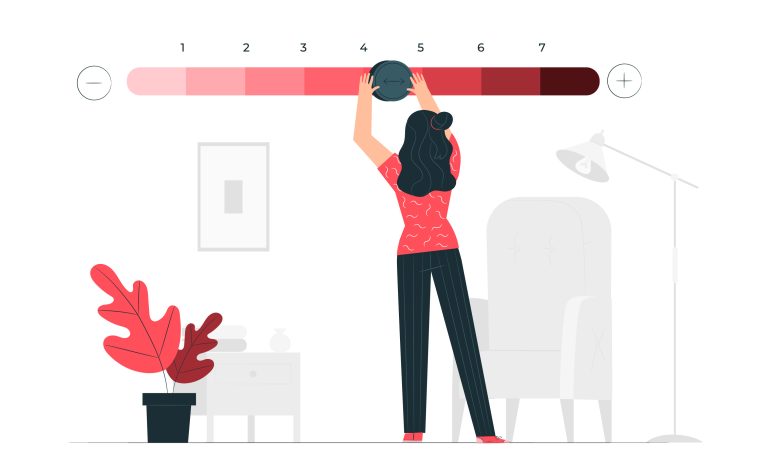
Level 3 Certificate in Assessing Vocational Achievement: Your Guide to Becoming a Qualified Assessor
Are you passionate about helping others develop their skills and gain qualifications in their chosen field? Do you see yourself playing a crucial role in evaluating vocational achievements? If so, then the Level 3 Certificate in Assessing Vocational Achievement (CAVA) might be the perfect path for you.
This guide delves into everything you need to know about this qualification, equipping you with the knowledge to make an informed decision about pursuing this rewarding career path.
What is the Level 3 Certificate in Assessing Vocational Achievement (CAVA)?
The Level 3 CAVA is a nationally recognized qualification designed for individuals who assess vocational skills, knowledge, and understanding in environments such as classrooms, workshops, or workplaces. This certification validates your ability to assess learners in both practical and theoretical contexts, ensuring they meet the required standards for their chosen profession or industry.
Requirements for Obtaining the Level 3 CAVA Certification
Before embarking on your journey to obtain the Level 3 CAVA certification, it’s essential to familiarize yourself with the prerequisites. Typically, candidates must:
- Be at least 19 years old: Most awarding bodies require candidates to be at least 19 years old, although specific age requirements may vary.
- Possess subject matter expertise: While there are no formal educational requirements, candidates should have a solid understanding of the subject area they wish to assess.
- Have access to learners: Candidates must have access to learners who are working towards a vocational qualification or apprenticeship.
- Undergo an assessment: The assessment process typically involves completing a series of written assignments, practical observations, and professional discussions to demonstrate competency in assessment practices.
Who is this qualification for?
This qualification is ideal for individuals who:
- Want to develop their skills in assessment and evaluation.
- Are passionate about supporting the development of others.
- Work in training, education, or workplace environments where assessing vocational skills is crucial.
- Want to enhance their career prospects in the vocational training sector.
What are the benefits of obtaining the Level 3 CAVA?
- Increased Earning Potential: Qualified assessors are in high demand across various industries, leading to better job opportunities and potentially higher salaries.
- Career Progression: This qualification opens doors to leadership roles within the vocational training sector.
- Enhanced Skills: You’ll gain valuable skills in assessment methods, providing feedback, and maintaining accurate records.
- Improved Credibility: Holding a recognized qualification strengthens your credibility as an assessor and positions you as an expert in your field.
What does the course cover?
The Level 3 CAVA equips you with the knowledge and practical skills necessary to become a competent assessor. Here’s a glimpse into what you can expect to learn:
- Principles of assessment and evaluation: This covers the different assessment methods, planning and conducting assessments, and ensuring fairness and validity.
- Understanding vocational qualifications: You’ll gain in-depth knowledge of the structure and requirements of various vocational qualifications.
- Assessment techniques: The course explores various assessment methods like observation, questioning, portfolio building, and practical skills tests.
- Providing feedback: You’ll learn effective strategies for providing constructive and clear feedback to learners to support their development.
- Maintaining accurate records: The course emphasizes the importance of maintaining accurate and comprehensive assessment documentation.
- Equality and diversity: You’ll gain the knowledge and skills to ensure assessments are conducted fairly and inclusively, considering individual needs.
How is the Level 3 CAVA assessed?
The assessment process typically involves a combination of:
- Written assignments: Demonstrating your understanding of assessment principles and vocational qualifications.
- Practical assessments: Conducting assessments with learners and providing feedback, simulating real-world scenarios.
- Portfolio development: Building a portfolio showcasing your assessment practices and evidence of your competence.
The Assessment Process
The assessment process for the Level 3 CAVA certification consists of several key components:
- Written Assignments: Candidates are required to complete written assignments that demonstrate their understanding of assessment principles, practices, and regulations. These assignments may include essays, case studies, or reflective journals.
- Practical Observations: Candidates must conduct assessments in real-life vocational settings under the supervision of a qualified assessor. This allows assessors to evaluate their ability to apply assessment criteria accurately and fairly.
- Professional Discussions: Candidates participate in professional discussions with their assessors to evaluate their knowledge and understanding of assessment theory and practice. These discussions provide an opportunity for candidates to demonstrate their ability to justify assessment decisions and respond to feedback effectively.
Where can I obtain the Level 3 CAVA?
Several awarding organizations and training providers offer the Level 3 CAVA in the UK. You can find a list of approved providers on the websites of organizations like:
- Qualifications and Curriculum Development Agency (QCDA):
- Ofqual (Office of Qualifications and Examinations Regulation)
Additional points to consider:
- Entry requirements: While there are no specific prerequisites, some providers may recommend having a Level 2 qualification in a relevant field.
- Course duration: The course duration can vary depending on the provider and chosen learning method. It can range from a few weeks to several months.
- Cost: The course fees can vary depending on the provider.
Potential Career Paths
Earning a Level 3 CAVA certification can open up a wide range of career opportunities in the vocational education sector, including:
- Vocational Assessor: As a qualified vocational assessor, you can work in various settings, including colleges, training centers, and workplaces, assessing learners’ skills and knowledge against industry standards.
- Internal Quality Assurer (IQA): IQAs are responsible for ensuring the quality and consistency of assessment practices within an organization. With a Level 3 CAVA certification, you may qualify for roles as an IQA, overseeing the work of assessors and conducting quality assurance checks.
- Training and Development Coordinator: Some organizations require training and development coordinators to design, deliver, and evaluate training programs for their employees. A Level 3 CAVA certification can provide you with the skills and knowledge needed to excel in this role.
Conclusion:
The Level 3 CAVA equips you with the necessary skills and knowledge to become a valuable asset in the vocational training sector. By successfully completing this qualification, you’ll gain the ability to assess learners effectively, contribute to their development, and play a crucial role in ensuring the quality of vocational training programs.
Remember, this guide provides a general overview. It’s advisable to research specific providers and course details to ensure it aligns with your needs and learning preferences.



